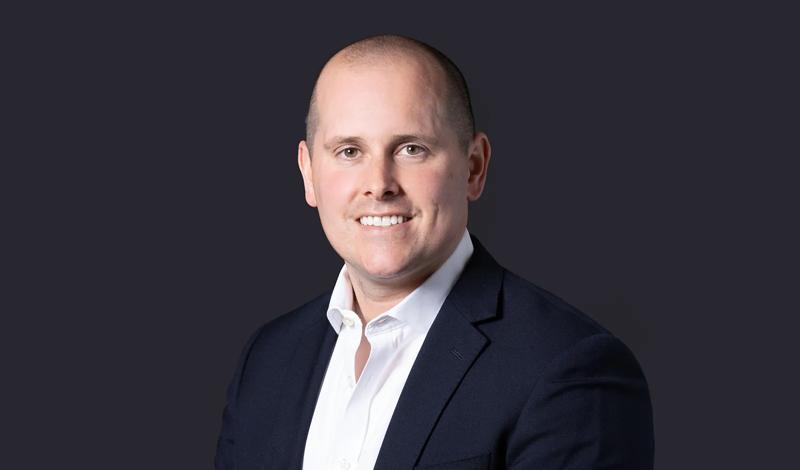Collaboration at Place – North East London
Steve Atkinson interviews Marie Price (Director of Corporate Affairs, North East London CCG) & Chris Cotton (Director of Transition) to see the choices that North East London have made in their collaborations at Place level.
Steve Atkinson interviews Marie Price (Director of Corporate Affairs, North East London CCG) & Chris Cotton (Director of Transition).
Please could you tell us about your roles in the CCG and, particularly, your responsibilities in relation to the governance arrangements which the NEL ICS is seeking to establish at ‘Place’?
Chris – I’m the director of transition for our integrated care system, which means that it’s my job to lead our overall programme to design and launch the ICS. So I work closely with everybody leading the individual areas of work, like developing our place partnerships, to make sure that all the pieces fit together to form an ICS capable of delivering our ambitions for North East London.
Marie – I’m the CCG’s director of corporate affairs, with engagement and governance as part of my portfolio. I’m responsible for making sure that we have safe and sensible arrangements for place-based decision making, which fit in with the wider governance structure. I’ve worked with Steve, Gerard and Charlotte from Browne Jacobson a lot over the past few years – including our CCG merger last year. They’ve helped us in our partnership working across multiple organisations to design creative and inclusive solutions at place.
Thriving Places (as you know very well!) builds on the Design Framework, setting out guidance on the development of Place Based Partnerships. It suggests a number of governance models which could be used to facilitate collaboration at Place. These range from a consultative forum to a joint committee model. As the guidance says, broadly, the former is useful for engaging a wider range of partners; whereas the latter enables decision-making.
Please could you reveal the approach NEL is intending to take across its Places, and why NEL considers that model would work best at this time?
NEL is in the fortunate position of having some very strong place-based partnerships – and we have committed to ensuring that the upcoming statutory changes do not disrupt local arrangements that work well and local partners wish to maintain.
Our intended approach, subject to formal sign-off in July, is to create in each place a committee of the ICB that will receive delegations from the ICB’s unitary board, making good the ambition for subsidiarity through a significant amount of system decision-making at place level. NEL is embracing the flexibility permitted in the national guidance to include a wide range of non-ICB members on this committee, including from Healthwatch and the voluntary sector where there is local appetite for this. The purpose of this is to bring the full range of local perspectives and expertise into decision making about ICB functions. In order to avoid having two forums operating in parallel, the place committees will meet alongside the existing place-based partnerships, operating together with a single agenda and set of papers, as well as with largely overlapping memberships.
This represents a safe but inclusive landing spot for 1 July 2022 and we understand that we will need to test these arrangements throughout the next year, refining as necessary as the legal landscape becomes clearer and national policy develops.
In NEL, the CCG and so the ICB has eight local authority partners working across seven London Boroughs and the City of London. You also have a number of trust and foundation trust partners, a thriving voluntary sector, and established networks across primary care. You have heard us repeatedly say that it is the established relationships in North East London that enable the NEL ICS to be ambitious with its arrangements for working at Place.
Please could you tell us about how NEL has approached designing its arrangements, given the number of partners and stakeholders? Have there been any particular challenges?
Our basic approach has been that we can never talk too much about the ICS – what our ambitions are, how it will work on 1 July, and how it will continue to evolve after that point. But we have needed to balance our desire for wide input with the very real and ongoing pressures on those whom we are seeking to engage: this is generally all on top of their day jobs.
We have therefore generally used time already dedicated to partnership work to plan our approach to place development within the ICS and, for more detailed work, established smaller working groups of those able to engage in the greater detail. This co-design between place and the CCG, on behalf of the future ICB, is critical is building a general consensus to how we will start off approaching ICS working in July 2022.
To make sure that our approach is coherent across NEL as a whole, we have continued to test all elements of the emerging design with NEL-wide groups containing political and executive leads from across all of our partners. We have done the same with our Healthwatch organisations as well as across the VCSE sector. This has enabled us to share ideas across places where we already have approaches working well but not widely known about.
We have also made use of the new NHS England national place development programme for two of NEL’s boroughs, which we hope will provide extra time and space to reflect on overall ambitions for delivery at place as well as the mechanics by which this can be achieved.
We have reviewed a number of proposed ICB constitutions for various clients across the country and have been helping to draft terms of reference for Place Based Partnerships and provider collaboratives. One point which has stood out to us is NEL’s enthusiasm, at the level of the ICB and at Place, to involve the VCSE sector.
Please could you say a little more about this approach and the ICS’s aspirations for involving the VCSE sector?
Yes, the role of the VCSE sector is particularly important to us in NEL. We have one of the most diverse populations in the country and a wide range of VCSE organisations. Through the pandemic our collaboration intensified and we intend to build on this.
The sector plays a role in helping us connect to NEL’s communities and provides many health and care services across the patch. We don’t want the VCSE to be the poor relation to the bigger NHS trusts and other providers in NEL. Our aspiration is for a shift in provision of more services by the sector and greater sustainability in funding. That’s why it was important for us to offer a seat as a full member on the ICB board, and within our place-based decision making groups.
There are incredible leaders and advocates from the sector in NEL, and together we successfully bid for NHSE funding to establish the VCSE collaborative. It’s through this group that we will secure representation at the ICB level, for the board and our cross-ICS programmes of activity such as mental health and long term conditions. We’d love to see the VCSE collaborative have the same clout and benefits as the other provider alliances – as an equal player and partner in our ICS.
In February, the government published a White Paper on health and social care integration. The importance of Place Based arrangements is emphasised throughout. Do you have any thoughts about how the direction of travel might affect NEL’s proposals for Place?
We’re digesting the contents with partners and while we have some questions, there is nothing there that seems at odds with our plans. If anything, it reinforces that we are approaching this in the right way.
Provider collaboratives did not feature in this White Paper, but again the development of those in NEL include a strong place-based element.
We know that what we establish on 1 July will be a model that will evolve, so have left enough flexibility to enable us to do that depending on how the White Paper proposals are developed.
Contact

Steve Atkinson
Principal Associate
steve.atkinson@brownejacobson.com
+44 (0)20 7871 8515





































